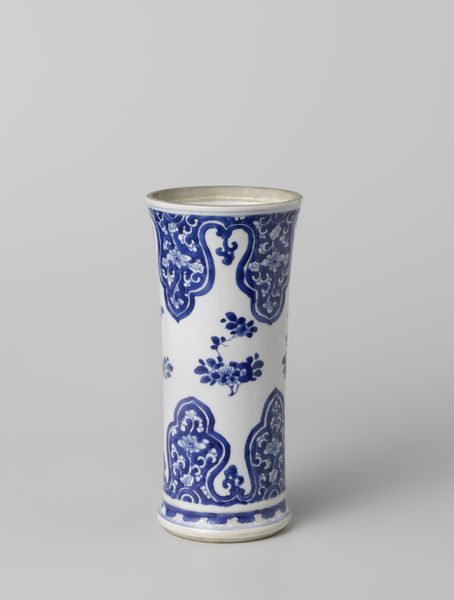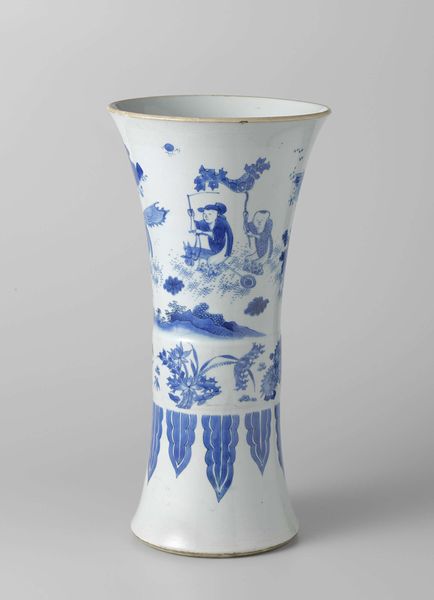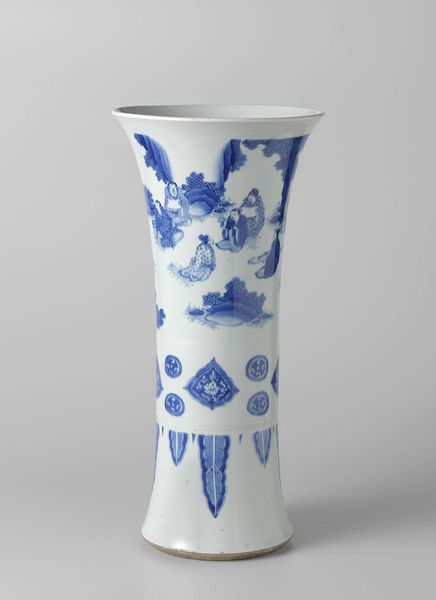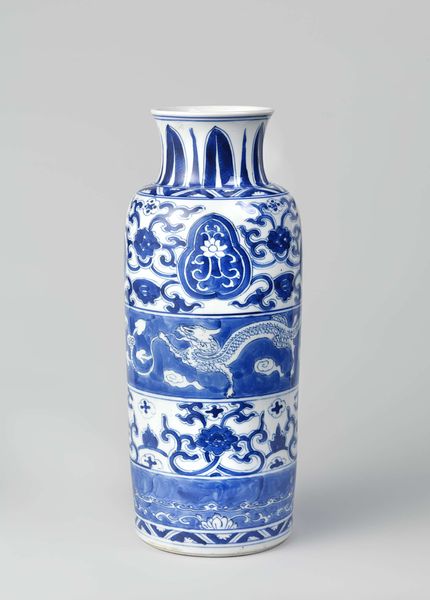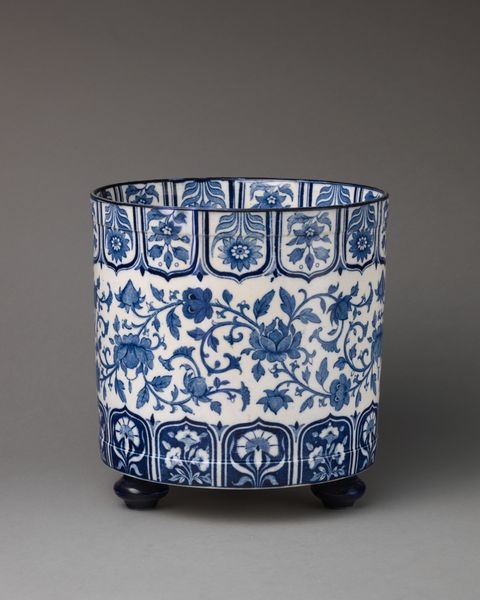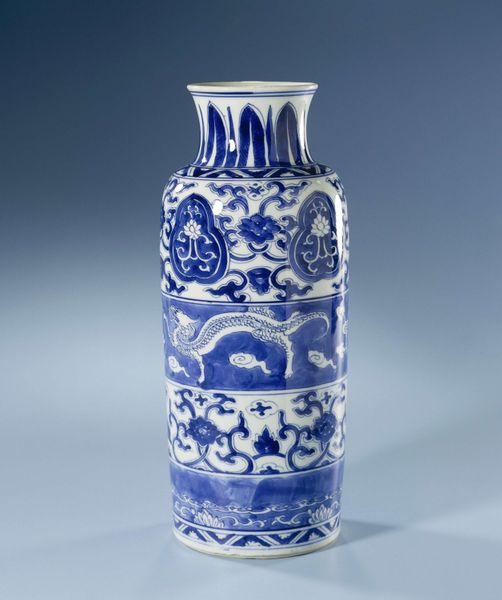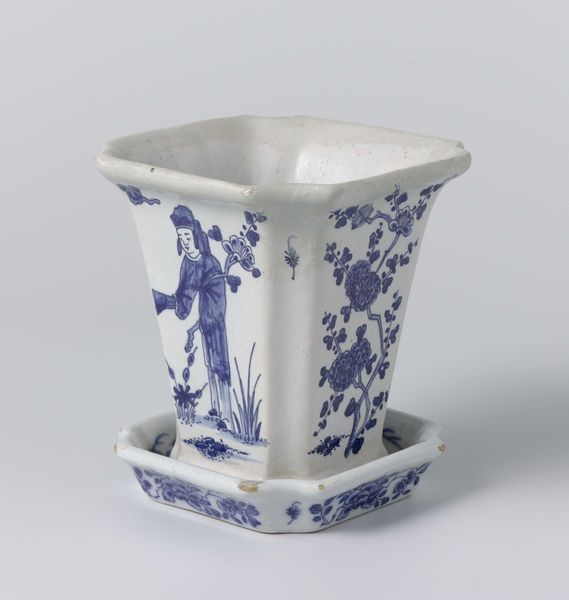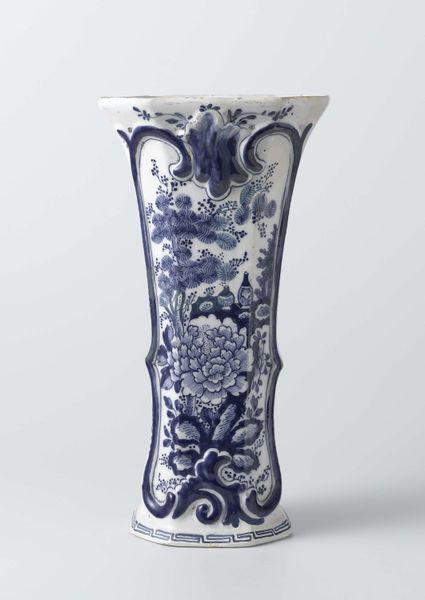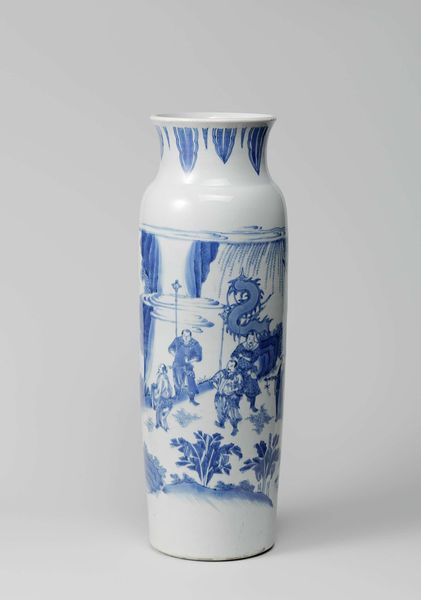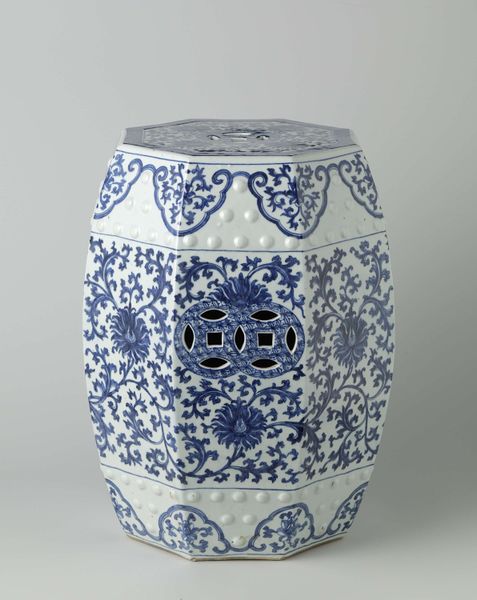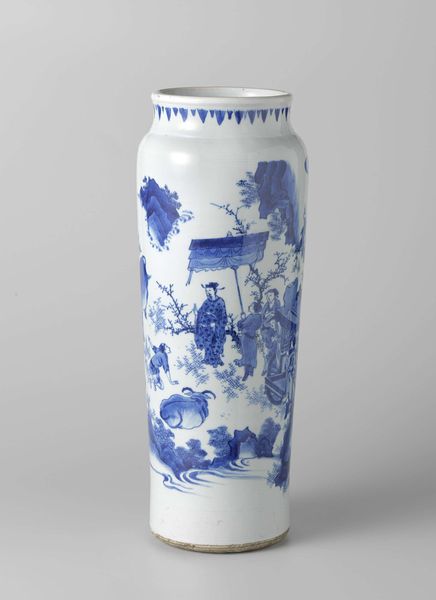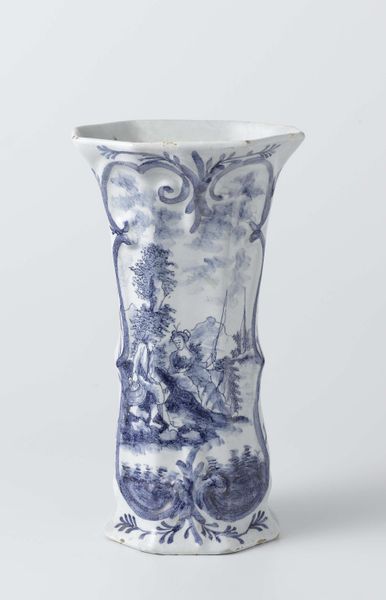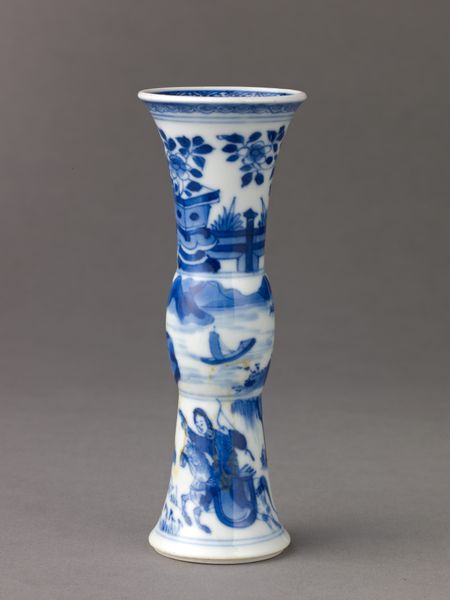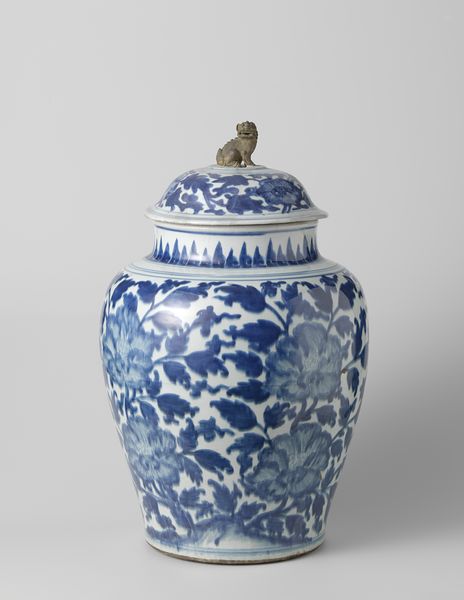
ceramic, porcelain, earthenware
#
ceramic
#
porcelain
#
earthenware
#
islamic-art
#
decorative-art
Dimensions: height 30 cm, diameter 14 cm
Copyright: Rijks Museum: Open Domain
Editor: Here we have a Delftware vase dating back to around 1700, part of a garniture. I’m really drawn to its intricate, layered decoration and almost architectural structure, a series of stacked cylinders. What catches your eye in this piece? Curator: Primarily, I’m drawn to its manipulation of form and surface. Consider the stark contrast of the blue and white; a dialectic pushing and pulling the eye across the object. How does the repetition of the floral motifs affect your reading of the structure itself? Editor: I think it gives a sense of unity, even though the designs are different in each section. Without it, would we read it as three separate pieces stacked on each other? Curator: Precisely. Notice how the artist employs a visual language rooted in the decorative arts, almost overwhelming in its density. Do you find any particular structural elements repeated besides the palette and flower choices? Editor: Well, there’s a horizontal banding, lines creating spatial distinction around the cylinders… also maybe some subtle asymmetry in the application of the paint that destabilizes the piece just a tiny bit? Curator: An astute observation. It avoids perfect symmetry, and disrupts the visual harmony just enough to introduce a subtle dynamism. Consider how this interplay of order and slight chaos invites us to continually re-evaluate the whole composition. The way the patterns and colour interact to make us look again. Editor: It's fascinating how focusing on these elements really changes my perception. I thought it was simply beautiful at first glance. I see more depth to this beautiful object now that the composition and pattern has been decoded. Curator: Exactly, and that's the reward of looking closely. I'm grateful you’ve spotted this, for in your vision, the piece lives on.
